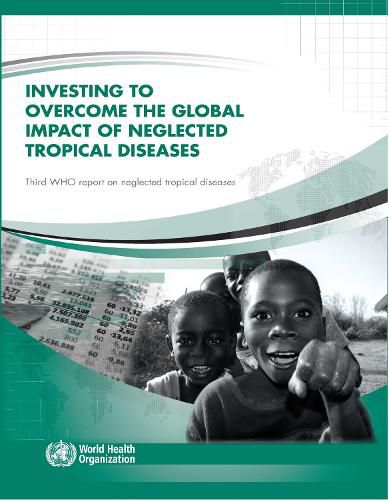Readings Newsletter
Become a Readings Member to make your shopping experience even easier.
Sign in or sign up for free!
You’re not far away from qualifying for FREE standard shipping within Australia
You’ve qualified for FREE standard shipping within Australia
The cart is loading…






This publication presents an investment strategy for NTDs and analyses the specific investment case for prevention, control, elimination and eradication of 12 of the 17 NTDs. Such an analysis is justified following the adoption by the Sixty-sixth World Health Assembly in 2013 of resolution WHA6612 on neglected tropical diseases, which called for sufficient and predictable funding to achieve the Roadmap’s targets and sustain control efforts. The report registers progress and challenges and signals those that lie ahead. Climate change is expected to increase the spread of several vector-borne NTDs, notably dengue, transmission of which is directly influenced by temperature, rainfall, relative humidity and climate variability primarily through their effects on the vector. Investments in vector-borne diseases will avoid the potentially catastrophic expenditures associated with their control. The presence of NTDs will thereby signal an early warning system for climate-sensitive diseases. The ultimate goal is to deliver enhanced and equitable interventions to the most marginalized populations in the context of a changing public-health and investment landscape to ensure that all peoples affected by NTDs have an opportunity to lead healthier and wealthier lives.
$9.00 standard shipping within Australia
FREE standard shipping within Australia for orders over $100.00
Express & International shipping calculated at checkout
This publication presents an investment strategy for NTDs and analyses the specific investment case for prevention, control, elimination and eradication of 12 of the 17 NTDs. Such an analysis is justified following the adoption by the Sixty-sixth World Health Assembly in 2013 of resolution WHA6612 on neglected tropical diseases, which called for sufficient and predictable funding to achieve the Roadmap’s targets and sustain control efforts. The report registers progress and challenges and signals those that lie ahead. Climate change is expected to increase the spread of several vector-borne NTDs, notably dengue, transmission of which is directly influenced by temperature, rainfall, relative humidity and climate variability primarily through their effects on the vector. Investments in vector-borne diseases will avoid the potentially catastrophic expenditures associated with their control. The presence of NTDs will thereby signal an early warning system for climate-sensitive diseases. The ultimate goal is to deliver enhanced and equitable interventions to the most marginalized populations in the context of a changing public-health and investment landscape to ensure that all peoples affected by NTDs have an opportunity to lead healthier and wealthier lives.